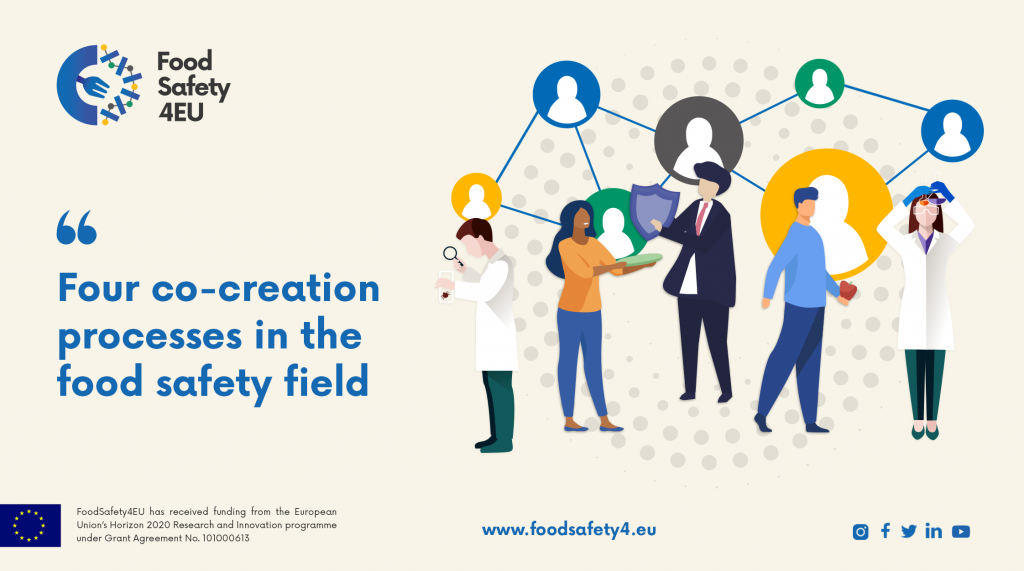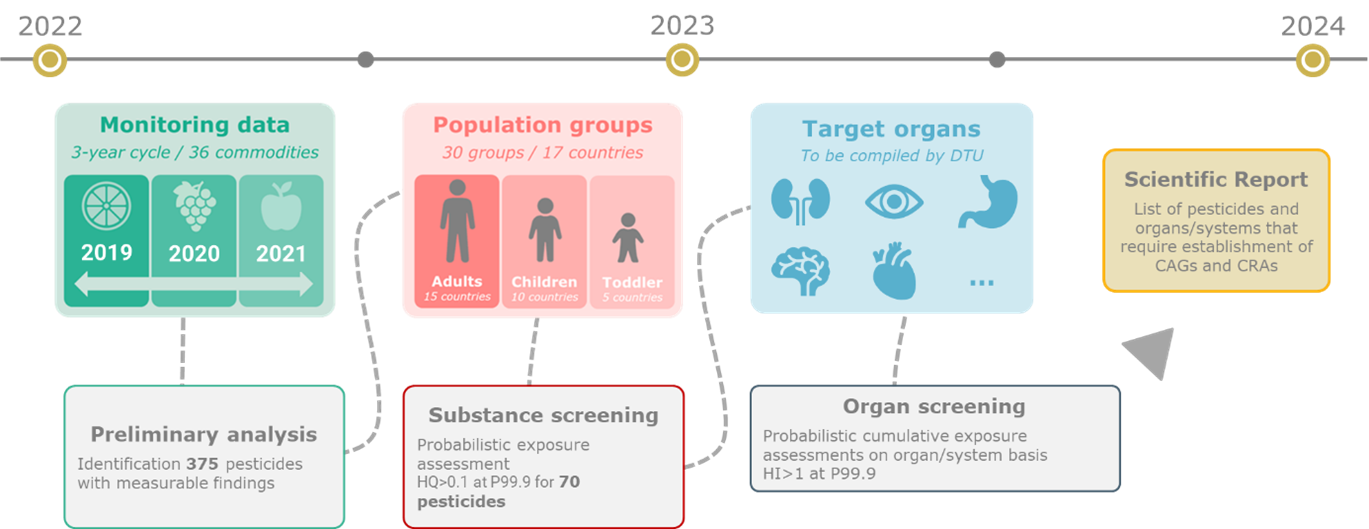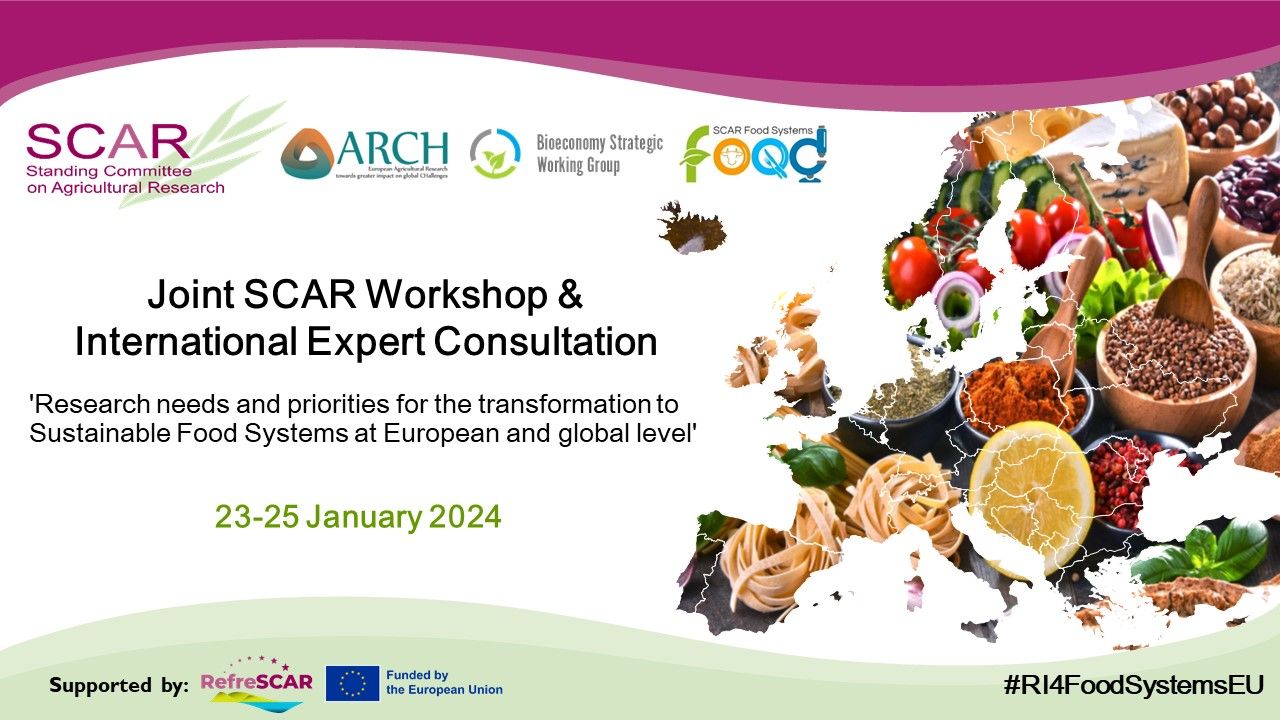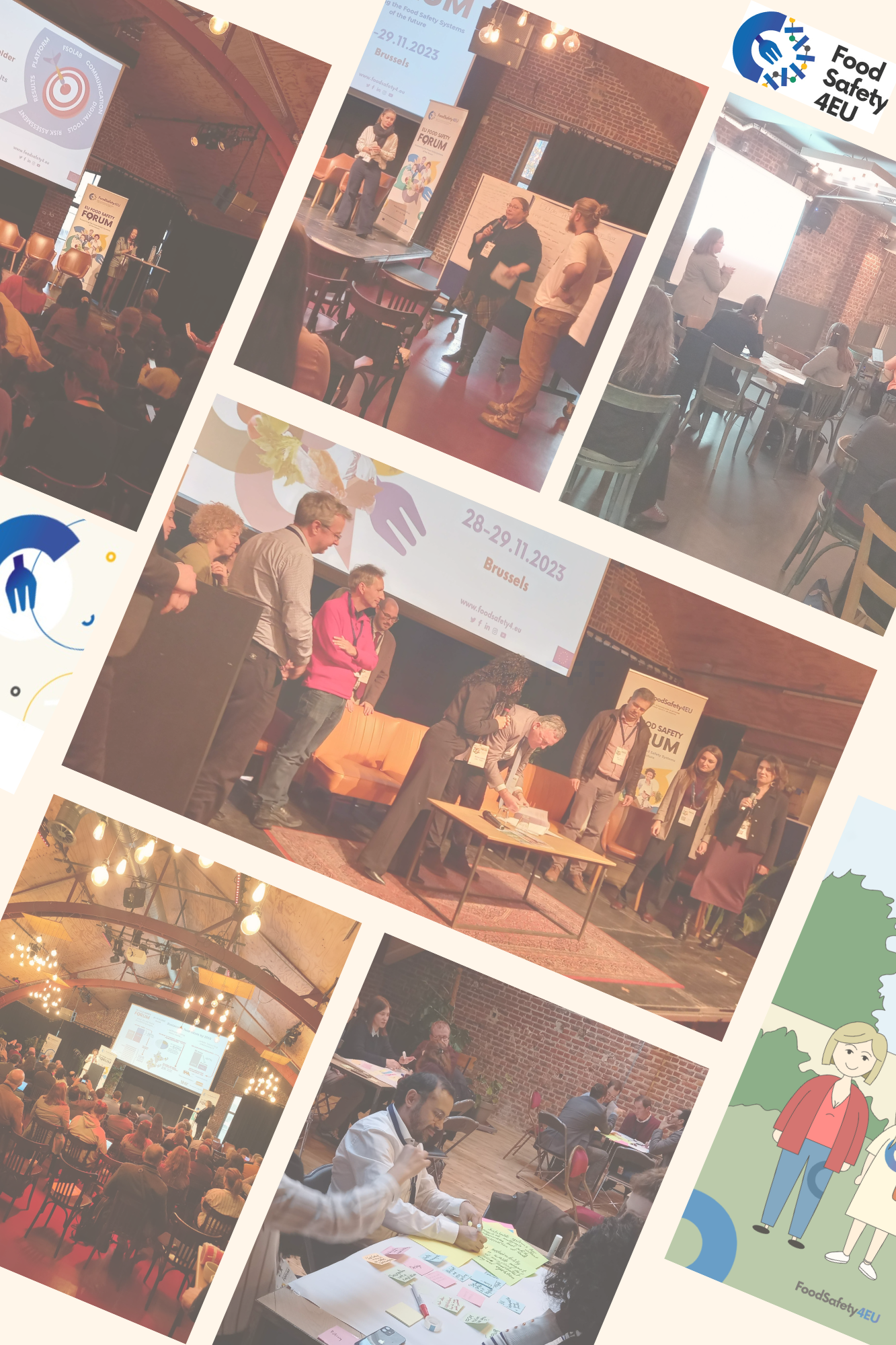Four co-creation processes in the food safety field

To discuss different angles within the complex topic of Food safety, the European Commission funded project FoodSafety4EU has set up four so-called food safety operational labs (FSOlabs). In these labs relevant actors from the food safety system exchanged and collaboratively came up with innovative actions to be implemented in four different priority fields of the food safety sector: i) Harmonization of enforcement practices with emphasis on unregulated hazard and emerging issues; ii) Aligning research programmes and funding opportunities at national and EU level; iii) Food Safety Strategic and Innovation Agenda; iv) Innovative approaches and models to inform civil society about food safety research and risk assessment.
An approach based on the social lab methodology
In general, social labs offer room for social experiments to address complex topics on a systemic level – in our case food safety related topics. The FSOlab process was structured as permanent working groups for the project’s duration. In a series of three workshops planned within one and a half years, the lab teams established ideas for actions, tested and evaluated them, and finally critically discussed them with a broader audience. This allowed for continuous learning cycles within the lab processes.
The learning cycles were organised along the workshops of the labs, namely: Workshop 1 was dedicated to ideation, co-creation and selection of ideas for specific actions according to relevant diagnosis aspects. Workshop 2 was dedicated to discussing, improving, and adapting the actions according to feedback and gained experiences. And Workshop 3 was dedicated to evaluating actions, discussing options for further development, and finally exploitations and recommendations.
The lab teams gathered for one-and-a-half or two-days workshops (initially planned f2f but finally online). Workshop methods and techniques were applied to enforce creative processes, support participants, tackle group dynamics and offer networking opportunities. To support co-creation processes a mix of many different formats, such as world café, design-thinking, fishbowl conversations, speed-dating sessions, or other Innovative workshop techniques were chosen. But of course also the intervals between the workshops were used to keep the lab process alive.

Positive feedback from participants All four labs came up with interesting solutions and products on their topics with which the lab participants were very satisfied. In general, there was a clear “thumb up” from the lab participants who were asked about their participation in the lab. They liked the methods and structure of the workshops, the composition of the groups and the interaction among them. Although some disadvantages could be found in the online format, many advantages were formulated, especially the easy participation at low cost. Also, many positive effects on their working environments could be noted. When asked whether they would ever participate in a lab again or recommend participation to others, the participants gave a clear yes. We have gladly incorporated their ideas for improving the labs for the next time
Latest Articles

Towards AI-driven emerging Risk Assessment: a multi-stakeholder perspective
The EU Food Safety Platform: a journey from Bari to Brussels and beyond

Towards holistic, AI-driven emerging risk assessment: catching stakeholders’ needs in Living Labs

Protecting public health: understanding the importance of cumulative risk assessment of pesticides

SCAR consultation workshop on Sustainable Food Systems: highlights from EU FOOD SAFETY PLATFORM

Pioneering advances in the EU Food Safety System: highlights from the first EU Food Safety Forum


